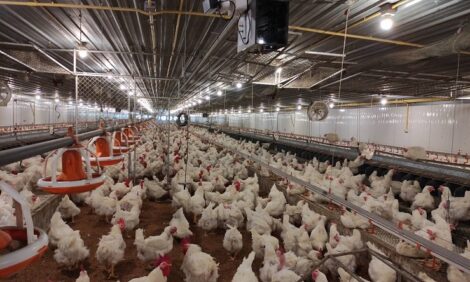



Minister Urges Feed Industry to Address Dioxin Issue
GERMANY - The latest dioxin scandal has caused "immense damage", says the Agriculture Minister adding that lessons must be learned by the animal feed industry.Germany's Agriculture Minister, Ilse Aigner, has called on the animal feed industry to clean up its act after the recent dioxin scandal which closed thousands of farms across the country.
Deutsche Welle reports that Ms Aigner has said lessons must be learned by the animal feed industry, following the closure of thousands of farms contaminated by the chemical dioxin.
Speaking at an emergency meeting with farmers' associations, consumer protection groups and representatives of the animal feed industry, Ms Aigner said the incident "must and will have consequences".
Earlier this month, illegal amounts of dioxin – a substance that can cause cancer – were found in German eggs. The cause was traced back to contaminated fat that was mixed with animal feed and moved up the food chain.
"The damage that has been caused is immense, not only financially but also when it comes to consumer trust," she said in Berlin. "This is a scandal, as consumers who expect safe food were duped."
The minister called on the animal feed industry to make "concrete suggestions" on how a repeat of the incident can be prevented in the future.
Last week, Germany banned some 4,700 of its 375,000 farms from selling their products. On 9 January, 3,000 farms were given the all-clear, leaving 1,635 still subject to restrictions.
Agriculture ministry spokesperson, Holger Eichele, said he expects "the number of farms closed to fall significantly in the coming days".
Ms Aigner would not speculate on the origin of the contaminated animal feed which has caused the scandal, according to Deutsche Welle.
Impact on exports
Suspect exports have been reported in the Netherlands, Britain and Italy and a spokesperson for the European Union Commission said yesterday, 10 January, that contaminated products have also made their way to France and Denmark.
Several countries including Slovakia and Russia imposed tighter controls on German imports as a result of the dioxin contamination, and German imports have been completely banned in South Korea, reports Deutsche Welle.
Frederic Vincent, spokesman for EU Health Commissioner, John Dalli, said South Korea's actions were a "disproportionate reaction compared to the existing situation in Germany".
Further Reading
| - | Go to our previous news item on this story by clicking here. |








